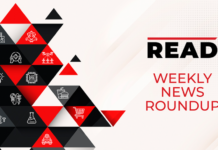Two North Carolina companies, analytics leader SAS and venture investment firm Pappas Capital, are joining forces to help advance the state as a global leader in agricultural technology. The state’s AgTech sector is ripe for continued growth and innovation, and technologies such as artificial intelligence, machine learning and analytics are driving innovation in digital agriculture. The collaboration between SAS and Pappas will allow select NC agriculture and food startups to gain guidance and executive leadership from Pappas and access to industry-leading analytics software, data science expertise and cloud services from SAS.
“North Carolina has an unrivaled combination of leading technology companies, a thriving entrepreneurial community, major research universities and international agriculture corporations committed to AgTech innovation,” said Paula Henderson, Executive Vice President and Chief Sales Officer for the Americas at SAS. “SAS and Pappas hope to harness this ecosystem to put the state at the forefront of solving the grand challenges of global hunger and food scarcity.”
Agriculture remains North Carolina’s leading industry and one that plays a vital role in the local, national and global economy. For instance:
More than 100 AgTech companies in the Research Triangle alone, as well as North Carolina State University’s renowned Plant Sciences Initiative.
$91.7 billion contributed to the state’s economy from agribusiness and agriculture in 2020.
4.4 million workers – one in six North Carolinians – employed in agricultural sectors, according to NC Chamber.
Emerging technologies and a massive increase in the amount and types of agricultural data available created opportunities in areas including crop protection, seeds and traits, precision ag, sustainability, animal health and nutrition, and indoor agriculture.
Seeding startups with analytics
SAS got its start more than 40 years ago by creating a system to analyze crop and livestock data. In 2019, the company returned to those roots by launching an AgTech business unit to help growers and agribusiness leaders turn an exploding amount of farm and agricultural data into insights that inform safe and secure food production. With investments in early-stage companies and contributions to the Southeast’s growing ecosystem, Pappas is supporting the AgTech companies that are poised to transform the agricultural industry. Karen LeVert, a Pappas venture partner, is leading an expansion of the firm’s Specialized Fund Management business, with a focus on identifying attractive investment opportunities in agricultural and other related technologies.
Through the collaboration, SAS will contribute analytics software and services to select startups, providing technical prowess the young companies would not have otherwise. The goal is to boost business success and power research breakthroughs for more North Carolina-based agricultural companies.
“Pappas and SAS offer significant potential to strengthen the state’s entrepreneur community and drive economic growth, while at the same time furthering the development of new technology-based solutions and tools to improve the health and function of plants, animals and microorganisms,” said LeVert.
A local startup is already seeing success with SAS analytics and funding from Pappas. Boragen, Inc., is pioneering a robust platform using the element boron to create new molecules that fight plant disease and protect crops, and that has broader applications in human health, animal health and agriculture.
Getting a new compound from the lab to the field is time-consuming and expensive, involving several phases of testing. SAS’ agricultural technology experts believe that their patent-pending breakthrough may change that. By applying SAS® artificial intelligence and machine learning technologies to agricultural chemical R&D data, researchers can better predict which products will be more effective and should be moved to the next testing phase, and which can be abandoned. The most promising products are moved into field testing quicker, shortening development time and generating greater cost savings.
“The Boragen story is an example for what we hope to accomplish for AgTech companies across the state,” said LeVert.




